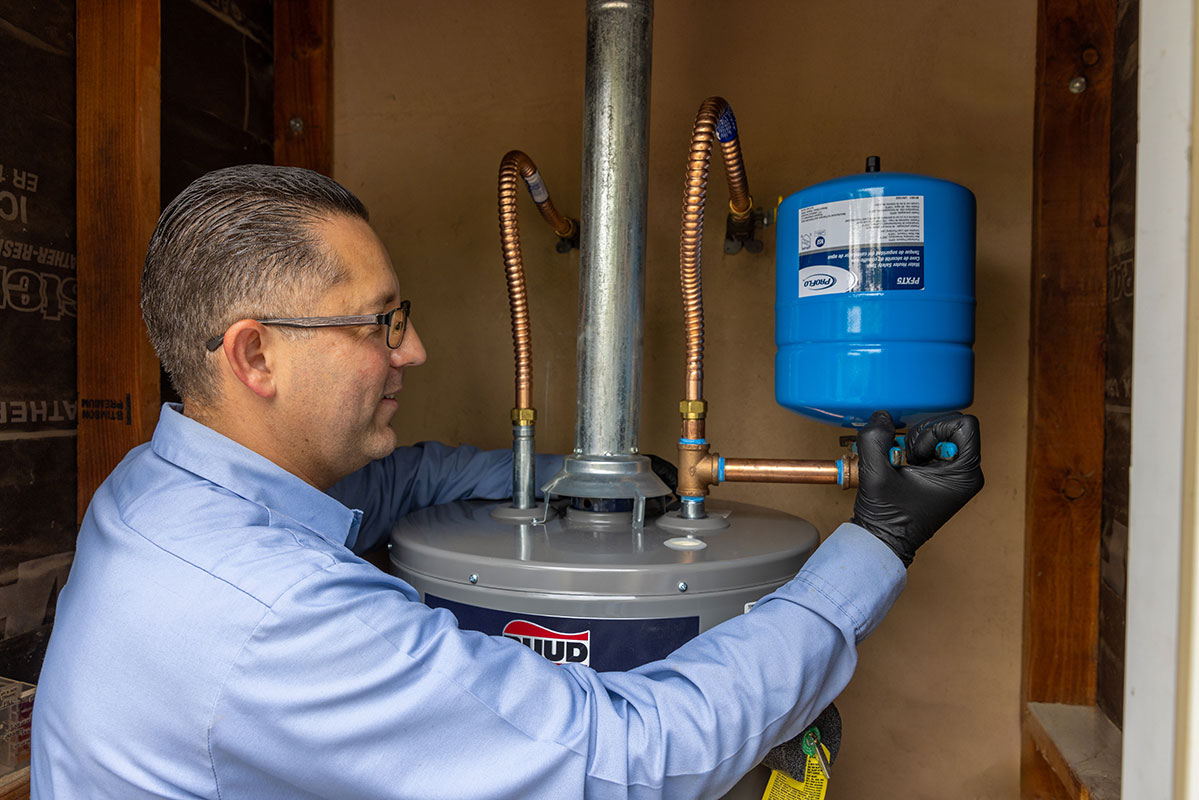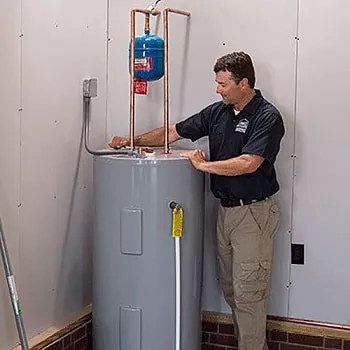Fast and Reliable Pipe Repair to Fix Leaks and Return Functionality
Fast and Reliable Pipe Repair to Fix Leaks and Return Functionality
Blog Article
Complete Guide to Water HeaterInstallment and Substitute
Understanding the complexities of hot water heater installation and substitute is crucial for home owners seeking to guarantee effectiveness and dependability in their hot water supply. From selecting the proper type and dimension to implementing a seamless setup procedure, numerous aspects have to be considered to prevent common risks. This guide will certainly provide you with the necessary steps and understandings to browse the intricacies of this home renovation job, while also highlighting crucial maintenance practices that can prolong the life of your system. As you explore these elements, you may find yourself reassessing your current arrangement and identifying areas for renovation.
Sorts Of Water Heaters
When taking into consideration hot water heater installation and replacement, it is essential to understand the numerous kinds of hot water heater readily available in the marketplace. The most typical types include tank water heaters, tankless water heaters, heatpump hot water heater, and solar water heaters.
Container water heating systems are typical systems that store a certain volume of warm water, making them conveniently available when needed. In contrast, tankless water heating systems offer warm water on need, eliminating the demand for storage.
Warm pump hot water heater utilize electrical power to move warm from the air or ground to warm water, supplying substantial power savings yet calling for more space and specific installation problems. Solar water heating systems harness solar power to warmth water, providing an environmentally friendly alternative with possible long-lasting cost financial savings, although they usually need a back-up system for over cast days.
Comprehending these alternatives makes certain educated decisions pertaining to setup and substitute, accommodating specific requirements and preferences.
Picking the Right Dimension
Selecting the suitable dimension for a hot water heater is vital to make certain optimum efficiency and efficiency. A system that is also little will struggle to satisfy home demands, leading to inconsistent warm water availability and raised power consumption. On the other hand, an oversized hot water heater can cause unnecessary power waste and higher energy expenses.
To figure out the right size, take into consideration the house's optimal warm water usage. This can be determined based on the number of residents and their typical warm water requirements. For instance, a household of 4 might require a water heating system with an ability of 50 to 80 gallons, depending on the usage patterns, such as synchronised showers and laundry.
Additionally, analyze the healing rate, which determines how promptly a heater can replenish warm water after it has been utilized. For tankless models, concentrate on the flow rate, gauged in gallons per minute (GPM), to ensure it meets the household's simultaneous demand.

Installation Process Introduction

Following, the old system should be disconnected and gotten rid of, making sure to follow neighborhood codes and guidelines relating to disposal. As soon as the old system is out, the new hot water heater can be placed in location. This step involves linking the supply of water lines, making certain that all installations are protected and leak-free.
After developing water connections, it's necessary to connect the power supply, whether electric or gas, adhering to the producer's guidelines diligently. As soon as all connections are made, the system ought to be loaded with water, and the power can be transformed back on. Lastly, it is necessary to look for leaks and ensure the hot water heater is functioning appropriately before completing the installment process.
Usual Installment Mistakes

One more constant mistake is disregarding to comply with local codes and laws. Stopping working to adhere to these standards can not only lead to security dangers but may also result in costly fines or the requirement for pricey reinstallation.
Failing to protect connections or making use of the incorrect type of fittings can lead to leakages and water damage. By preventing these typical installation blunders, home owners can guarantee their water heater runs safely and successfully, optimizing performance and longevity.
Maintenance Tips for Durability
Appropriate upkeep of a hot water heater is crucial for its longevity and ideal performance. Normal inspections and maintenance can protect against expensive repair services and extend the appliance's life-span. Begin by inspecting the temperature setup; it needs to normally be set between 120 ° this hyperlink F and 140 ° F for ideal power efficiency and safety and security.
Every six months, purge the storage tank to remove debris buildup, which can harm heating effectiveness and trigger deterioration. To do this, turn off the heating unit, attach a hose to the drainpipe shutoff, and let the water run up until it is clear.
When they are corroded,Anode poles need to my sources be evaluated each year and replaced. These poles help prevent storage tank rust by bring in destructive aspects in the water.
Additionally, inspect the pressure relief valve on a regular basis to ensure it is operating appropriately. This shutoff is essential for stopping excessive stress buildup within the container.
Lastly, consider scheduling a professional maintenance check every few years for complete inspections and servicing. By adhering to these upkeep suggestions, homeowners can considerably enhance the effectiveness, safety, and life-span of their hot water heater, guaranteeing reliable hot water for several years to find.
Conclusion
In conclusion, correct installation and upkeep of water heating systems are critical for making sure effectiveness and long life. By understanding these necessary aspects, home owners can accomplish a trustworthy hot water supply while minimizing prospective issues connected to water heating unit operation.
Recognizing the complexities of water heating unit installation and substitute is important for house owners looking for to make certain effectiveness and integrity in browse around here their warm water supply.Storage tank water heating units are conventional systems that keep a details quantity of hot water, making them conveniently available when required. In comparison, tankless water heating systems offer warm water on demand, removing the requirement for storage space. Picking a water heating system that is either too tiny or as well big can lead to inefficiencies, resulting in poor warm water supply or too much energy usage.
By understanding these necessary aspects, home owners can accomplish a dependable warm water supply while reducing potential concerns related to water heating unit procedure. gas leak repair.
Report this page